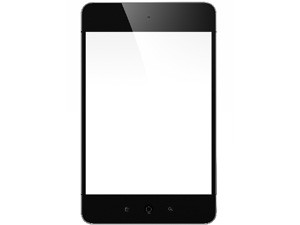
Computer manufacturer Acer today showcased its first attempt at a phablet at its conference, at Computex 2013.
The 5.7-inch smartphone, dubbed the Liquid S1, was revealed by the Acer team along with other products in the mobile computing sector.
Computex is the second largest computer exhibition in the world and is held from 4 to 8 June, in Taipei.
At the conference, themed "redefining technology through touch", Acer said the Liquid S1 is geared at true multitasking on a smartphone with floating apps that overlap other applications.
The Liquid S1 has a 5.7-inch HD 1 280 x 720 display, is powered by a quad-core 1.5GHz processor and runs Android 4.2 Jelly Bean.
The device has 1GB of memory with an 8MB camera at the back and a 2MP camera in front for video calling.
The Liquid S1 is, however, not Acer's first attempt at a smartphone, with models like the Liquid E2, Liquid Z2 and CloudMobile S500 already part of its line-up. The Liquid C1, powered by an Intel Atom processor, was released in Thailand in January.
It also announced what it said is the world's first eight-inch Windows tablet, a collaborated effort between Acer, Microsoft and Intel. The Iconia W3 is powered by an Intel Inside processor, has a 1 280 x 800 display, with up to eight hours of video playback.
A snap-on keyboard accessory is also available, with Acer claiming the Iconia will have "all-day battery life".
For more information on the Acer conference and pictures of its new products, go to The Verge.
Dying PC, new opportunities
Last week, the International Data Corporation (IDC) said it expects worldwide PC shipments to fall by 7.8% in 2013.
The IDC updated its original forecast of a 1.3% decline, stating consumers are delaying replacing their PCs or just opting for tablets. The decline in shipments is expected to slow down in 2014 to 1.2% and start picking up by 2017, with shipments increasing by 1.5%.
Programme vice-president of Worldwide Quarterly PC Trackers at IDC, Loren Loverde, says as the market develops, usage patterns and devices are evolving. "Many users are realising that everyday computing, such as accessing the Web, connecting to social media, sending e-mails, as well as using a variety of apps, doesn't require a lot of computing power or local storage.
"Instead, they are putting a premium on access from a variety of smaller devices with longer battery life, an instant-on function, and intuitive touch-centric interfaces," says Loverde.
He adds these users have not necessarily given up on PCs as a platform for computing when a more robust environment is needed, but this takes a smaller share of computing time, and users are making do with older systems.
More and more computing companies are thus making the shift towards mobile devices such as smartphones and tablets.
Chinese company Lenovo has been increasing its development of mobile technology with its CEO, Yang Yuanqing, telling the Wall Street Journal in an interview that the company plans to expand its smartphone sales into the US within the next year. Last year, Lenovo released its smartphones in Vietnam, India, Russia, Indonesia and the Philippines.
Although Lenovo is doing well in the PC market, considering the influx of tablets and other mobile devices, Yuanqing said smartphones are a new opportunity for it to ensure future growth. "As a public company, you always have to consider how to grow."
World Wide Worx MD Arthur Goldstuck says entering the smartphone market is the logical step for any computer manufacturer if it wants to keep head above water. "For much of the world's population, a smartphone is the only computer many people will ever use. It would be short-sighted for a computer maker not to embrace mobile."
Share